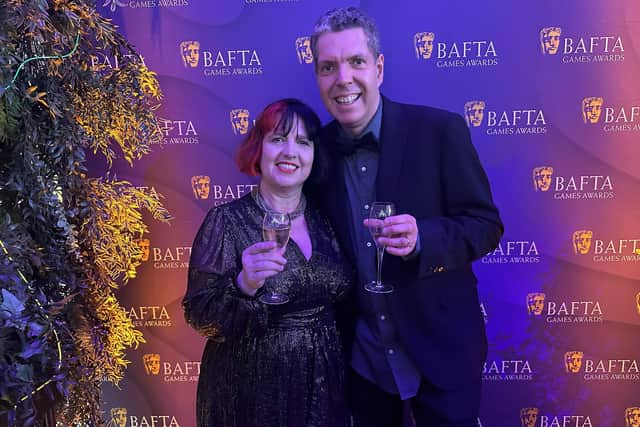Yorkshire success at the BAFTA Games Awards is welcome following a tough year for the industry - Jamie Sefton
After a tough 12 months for the games industry, seeing games like Baldur’s Gate 3 picking up five awards, and giving a namecheck to Yorkshire audio services company PitStop Productions for their work on the game, as well as charity SpecialEffect winning a special BAFTA for its work helping people with disabilities access games, was a very positive experience.
The BAFTAs also illustrated how far games have come in the last two decades as both an industry and as a cultural force. One aspect being the closer links between games, TV and film. I would love to see more collaboration and cross-fertilisation between the film and TV industries and the games industry.
Advertisement
Hide AdAdvertisement
Hide AdIt’s better than it has been, but we can still do much more to educate each other about our industries, access more funding for such endeavours and work collaboratively on creative projects. I don’t blame anyone for the lack of consistent collaboration – the majority of games companies are not reaching out to other screen industries because they are so busy with games development and making sure their businesses remain viable and profitable. Any creative endeavour – especially those in the field of creative industries, is incredibly difficult, and means it is sometimes easier to stay in our silos to a certain extent.


When I joined Game Republic in 2008, it was funded by and part of screen agency Screen Yorkshire. We were all working in the same office in Leeds and shared a great deal of common ground regarding our love of the creative industries – but it was clear there was very little business crossover between the different sectors.
The established linear medium of TV and film was very different to the relatively new interactive medium of games – writing, development and production, job titles and ways of working, technology, distribution and funding, investment models were all hugely different. The tax breaks weren’t there for games at that time, and we didn’t attend the same industry events – really, apart from perhaps a film and TV tie-in possibility and some writing workshops, there was very little cross-pollination.
Fast forward 16 years later to 2024 and Game Republic is now its own entity and privately owned and funded, and there are more examples now of collaboration and movement between the screen industries.
Advertisement
Hide AdAdvertisement
Hide AdWe do now have crossover technology with the use of graphics engines such as Unreal for virtual production in ads, TV and films. Game Republic and Screen Yorkshire collaborated last year on a successful Next Level West Yorkshire Combined Authority training initiative for mid-level TV, film and games individuals looking for a lead role, with Unreal Engine training and virtual production experience at the fantastic XPLOR at the Production Park near Wakefield.
Television shows based on games have been a huge hit with HBO’s The Last of Us and more recently Amazon Prime’s Fallout, about a post-nuclear world where some humans live in sealed vaults. The Super Mario Bros Movie is now the second biggest-grossing animated movie of all time and there are plans for a Legend of Zelda live-action movie too.
Netflix is commissioning games, such as The Queen’s Gambit by North-West-based game developer Ripstone, and has its own games store. AMC, Amazon, Warner Bros and Disney also have their own games and VR studios and projects. Games are driving new narrative explorations in VR especially.
Also, screen-focused festivals in our region such as DocFest in Sheffield and Aesthetica in York now feature games content.
Advertisement
Hide AdAdvertisement
Hide AdSo, there is plenty to be positive about. One wish though – we have the BBC based in Salford and Channel 4 in Leeds, and so having a public-funded broadcaster invest more in our region’s games companies on innovative cross-media projects could really be transformative.
The BBC previously funded games such as City of the Daleks, developed by Sumo Digital in Sheffield and Revolution in York, and Channel 4 funded numerous indie games titles. Hopefully as technology and the games industry progresses and continues to innovate in eSports, storytelling, interactive entertainment and on streaming/video platforms such as TikTok and Twitch, the mainstream broadcasters will have to look more to games for content opportunities, especially if they want to engage with a wider range of audiences.
There is so much potential in this area and I hope that we will see more. Collaboration between the screen industries in Yorkshire and across the North would mean the future could be incredibly exciting.
Jamie Sefton is managing director of Game Republic.
Comment Guidelines
National World encourages reader discussion on our stories. User feedback, insights and back-and-forth exchanges add a rich layer of context to reporting. Please review our Community Guidelines before commenting.